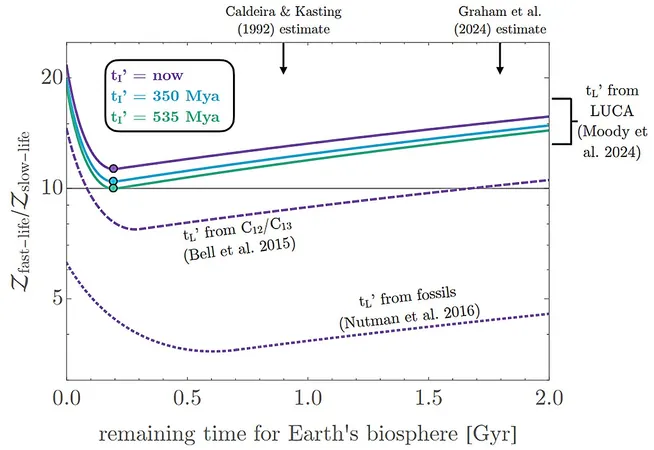
Astrophysicist Unveils Shocking Insights: Life May Spring Up Quickly on Earth-like Planets!
2025-04-28
Author: Emma
Could Life Emerge Faster than We Thought?
In an eye-opening revelation, astronomer David Kipping from Columbia University asserts that life on Earth-like planets may emerge at a surprisingly rapid pace once conditions become favorable. His groundbreaking study, featured in the journal *Astrobiology*, suggests that just like on Earth, life could quickly sprout on other celestial bodies.
A Cosmic Race Against Time!
Kipping dives into Earth's timeline, noting how life appeared merely 250 million years after the planet's formation, around 4.2 billion years ago. With Earth's formation dated at 4.5 billion years ago, this victory of life over time speaks volumes about the potential for similar processes on other planets.
The Countdown is On!
As our sun ages, Kipping warns that Earth may only be habitable for another 900 million years. If life had taken longer to develop here, it might have faced extinction before intelligent beings like humans could evolve. This timeline raises critical questions about the potential for intelligent life elsewhere in the universe.
Implications for Extraterrestrial Life!
The implications of this research are staggering for the quest to find life beyond our solar system. If Earth demonstrates that life can kickstart quickly under the right circumstances, then it stands to reason that Earth-like planets could follow suit. Kipping's updated Bayesian analysis indicates a thrilling 13 to 1 chance that rapid abiogenesis could occur on other worlds, making the quest for extraterrestrial intellect even more tantalizing.
What's Next in the Hunt for Life?
Kipping emphasizes that his conclusions are based strictly on life’s origins on Earth, setting aside the controversial idea of panspermia—where life might travel between planets. As new evidence emerges regarding the formation of life, these odds could shift, further refining our understanding of life’s potential spread across the cosmos.









 Brasil (PT)
Brasil (PT)
 Canada (EN)
Canada (EN)
 Chile (ES)
Chile (ES)
 Česko (CS)
Česko (CS)
 대한민국 (KO)
대한민국 (KO)
 España (ES)
España (ES)
 France (FR)
France (FR)
 Hong Kong (EN)
Hong Kong (EN)
 Italia (IT)
Italia (IT)
 日本 (JA)
日本 (JA)
 Magyarország (HU)
Magyarország (HU)
 Norge (NO)
Norge (NO)
 Polska (PL)
Polska (PL)
 Schweiz (DE)
Schweiz (DE)
 Singapore (EN)
Singapore (EN)
 Sverige (SV)
Sverige (SV)
 Suomi (FI)
Suomi (FI)
 Türkiye (TR)
Türkiye (TR)
 الإمارات العربية المتحدة (AR)
الإمارات العربية المتحدة (AR)